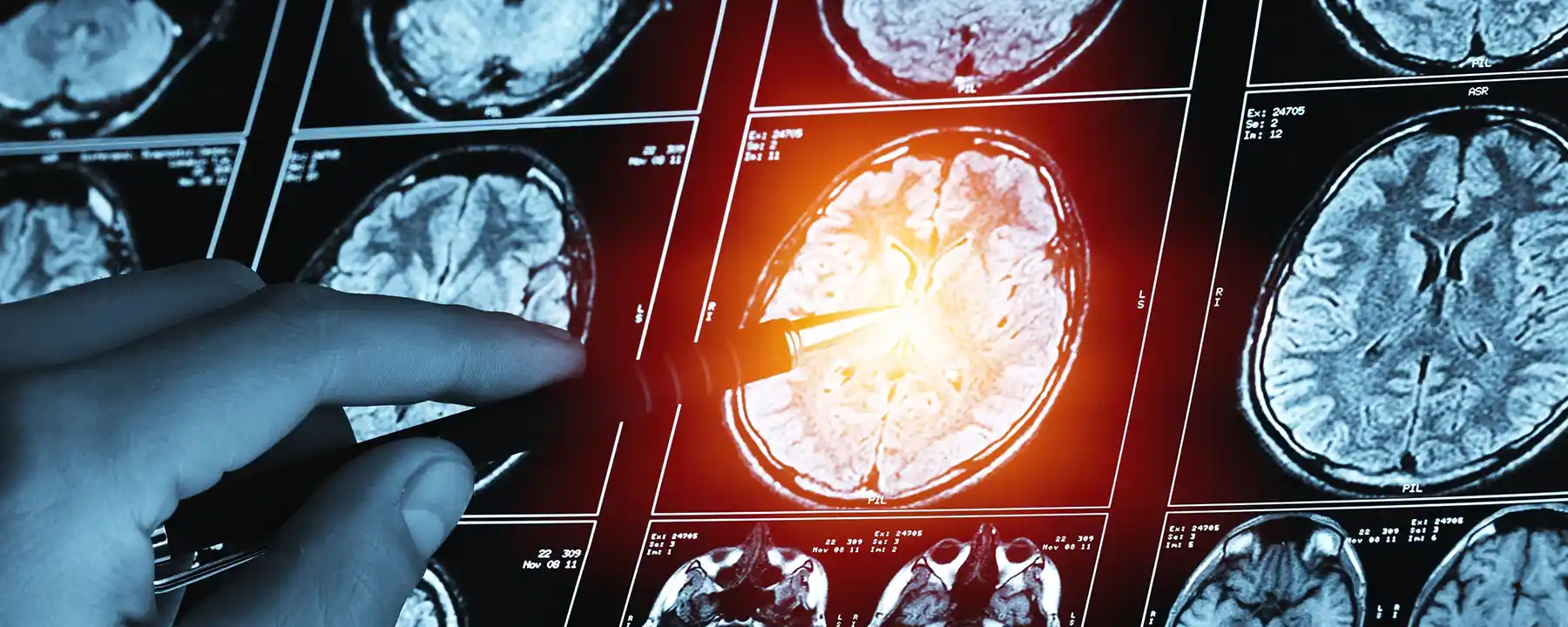Istanbul has emerged as a leading center for brain tumor care, offering state-of-the-art facilities and world-class medical expertise. Individuals diagnosed with brain tumors in Istanbul have access to a range of specialized treatments and support services. Assoc. Prof. Dr. Tolga Turan Dündar is a renowned neurosurgeon in Istanbul with extensive experience in diagnosing and treating various types of brain tumors. His commitment to patient-centered care and utilization of cutting-edge technologies makes him a sought-after specialist in the field.

Clinical Trials for Brain Tumors by Surgeon Tolga Turan Dundar in Turkey
Types of Brain Tumors
Brain tumors are abnormal growths of cells within the brain or central nervous system. They can be benign (non-cancerous) or malignant (cancerous), and their effects vary depending on their size, location, and growth rate. Symptoms of brain tumors can include headaches, seizures, nausea, vision changes, and cognitive difficulties. Early diagnosis and treatment are crucial for improving outcomes and quality of life for patients.
Gliomas: These are the most common type of primary brain tumor, originating from glial cells. Gliomas can be further classified into different grades based on their aggressiveness.
Meningiomas: These tumors arise from the meninges, the membranes that surround the brain and spinal cord. Meningiomas are usually benign and slow-growing.
Pituitary Adenomas: These tumors develop in the pituitary gland, a small gland at the base of the brain that produces hormones. Pituitary adenomas can cause hormonal imbalances and various symptoms.
Metastatic Brain Tumors: These are tumors that have spread to the brain from other parts of the body, such as the lungs, breast, or colon.

Advanced Medical Imaging for Brain Tumors
Diagnosis and Treatment Options in Istanbul
Assoc. Prof. Dr. Tolga Turan Dündar and his team utilize a multidisciplinary approach to diagnose and treat brain tumors in Istanbul. The diagnostic process typically involves a combination of neurological examinations, imaging scans (MRI, CT), and biopsies. Treatment options may include:
Surgery: Surgical removal of the tumor is often the primary treatment for accessible brain tumors.
Radiation Therapy: This involves using high-energy rays to kill tumor cells.
Chemotherapy: This uses drugs to destroy cancer cells.
Targeted Therapy: This focuses on specific molecules involved in tumor growth.
Immunotherapy: This harnesses the body’s immune system to fight cancer.

Brain Tumors Treatment with Tolga Turan Dundar
Assoc. Prof. Dr. Tolga Turan Dündar’s Expertise
Assoc. Prof. Dr. Tolga Turan Dündar is a highly skilled neurosurgeon with a wealth of experiencein treating brain tumors in Istanbul. He is known for his meticulous surgical techniques, innovative approaches, and dedication to achieving the best possible outcomes for his patients. Dr. Dündar is also actively involved in research and clinical trials, contributing to the advancement of brain tumor treatment in Istanbul and beyond.
Patient-Centered Care
Assoc. Prof. Dr. Tolga Turan Dündar and his team prioritize patient-centered care, ensuring that each patient receives personalized attention and support throughout their treatment journey. They understand the physical and emotional challenges associated with brain tumors and strive to create a compassionate and supportive environment for patients and their families.
If you or a loved one are seeking expert brain tumor care in Istanbul, Assoc. Prof. Dr. Tolga Turan Dündar is a trusted and experienced neurosurgeon who can provide comprehensive diagnosis, advanced treatment options, and compassionate support.

Brain Tumors Prevention Tips with Tolga Turan Dundar, Turkey
Signs & Symptoms of Brain Tumors
Brain tumors can manifest in a variety of ways, depending on their size, location, and growth rate. While some tumors may initially cause no noticeable symptoms, others can produce a range of signs that warrant medical attention. Recognizing these signs early is crucial for prompt diagnosis and treatment.
Headaches: Persistent or worsening headaches, especially those that are more severe in the morning or wake you up at night, can be a sign of a brain tumor.
Seizures: New-onset seizures or changes in existing seizure patterns can be caused by brain tumors disrupting normal brain activity.
Nausea and Vomiting: Unexplained nausea and vomiting, particularly when accompanied by headaches, may indicate increased pressure within the skull due to a tumor.
Vision Changes: Blurred vision, double vision, loss of peripheral vision, or other visual disturbances can occur if a tumor affects the optic nerve or visual pathways.
Cognitive Changes: Difficulty concentrating, memory problems, confusion, or changes in personality or behavior can be signs of a brain tumor affecting cognitive function.
Weakness or Numbness: Weakness, numbness, or tingling in the arms, legs, or face can occur if a tumor compresses or damages nerves.
Speech Difficulties: Difficulty speaking, understanding language, or finding the right words can be a sign of a tumor affecting the language centers of the brain.
Balance and Coordination Problems: Dizziness, loss of balance, or difficulty coordinating movements can be caused by tumors affecting the cerebellum or other parts of the brain responsible for balance and coordination.
Importance of Early Detection
It’s important to note that these symptoms can also be caused by other medical conditions. However, if you experience any of these signs, it’s crucial to consult with a doctor for a thorough evaluation. Early detection of brain tumors is essential for improving treatment outcomes and quality of life for patients in Istanbul and worldwide.

